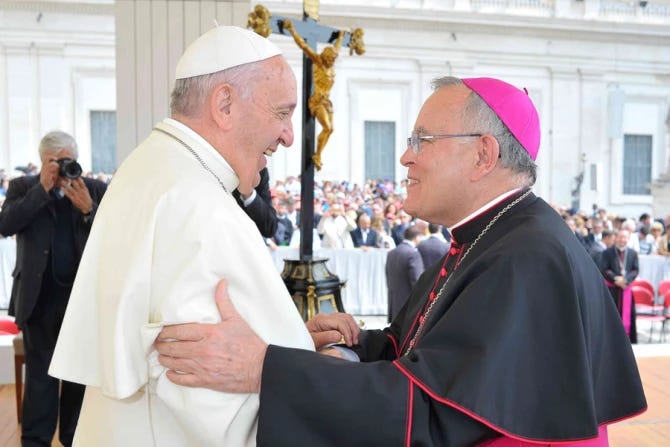‘The courage to be candid’ - Chaput on Francis, and what's next
"We’re meant to be active witnesses of Jesus Christ, not fellow travelers."
Archbishop Charles Chaput, OFM Cap., is the emeritus archbishop of Philadelphia, a long-time leader among American bishops, and an influential voice among American Catholics for decades.
The archbishop spoke with The Pillar this week about the Francis papacy, and what he thinks the Church needs now.

